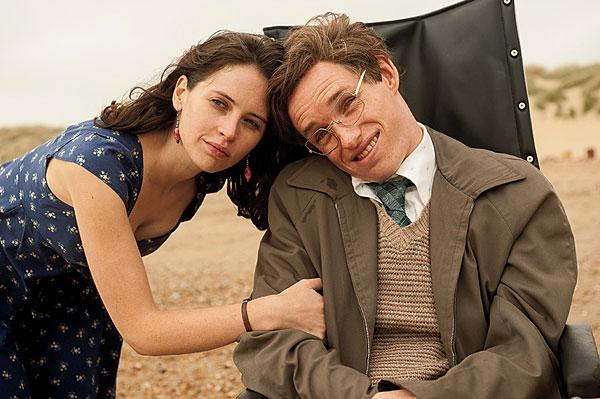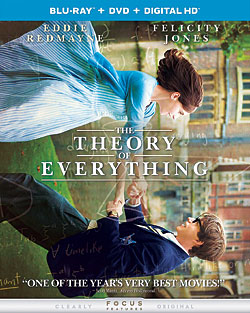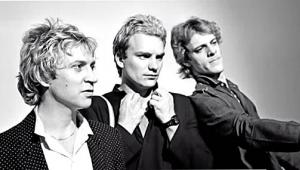The Theory of Everything

Director James Marsh’s film is a romantic battle between science and religion, between a physicist and a medieval poetry scholar, black holes and the heavens. As Hawking puts it, he belongs to “a religion for intelligent atheists” because “I have a slight problem with the whole celestial dictator premise.” Space-time singularity, tracing back to when the universe was born, is at the heart of Hawking’s PhD thesis; then he sets about disproving it, showing that the universe has no boundaries. Meanwhile, his disease progressively strips the use of all muscles, not affecting his brain but gradually stealing his ability to express his ideas.
 The strikingly composed widescreen images block parts of the screen, isolating Hawking as his disease imprisons him. Contrast is excellent, with inky-black dinner jackets, bright-white dresses, a mixture of vibrant colors, autumnal hues, and restrained but rich pastels, all solid. Exteriors have plentiful depth, and everything is insanely detailed. Thin stripes in corduroys are visible as are hair strands, freckles, and grain in wooden walls.
The strikingly composed widescreen images block parts of the screen, isolating Hawking as his disease imprisons him. Contrast is excellent, with inky-black dinner jackets, bright-white dresses, a mixture of vibrant colors, autumnal hues, and restrained but rich pastels, all solid. Exteriors have plentiful depth, and everything is insanely detailed. Thin stripes in corduroys are visible as are hair strands, freckles, and grain in wooden walls.
At the point of his connecting the birth of the universe with black holes, violently rhythmical strings stream from the surrounds with the rest of the orchestra in the front channels, building from a slow start as Hawking works on his formulas to a crescendo as he makes his breakthrough and immediately afterwards takes his first fall. Natural-sounding atmospherics are mixed with an almost imperceptible ever-present ticking clock, suggesting time and life slipping away. Dialogue from Cambridge upper-class voices is always clear.
Commentary by Marsh is insightful and educational, pointing out the film language and meaning he tried to get across visually. Ten minutes of interesting deleted scenes come with Marsh explaining why such surprisingly good moments were cut even though they add to the film. A featurette on actor Eddie Redmayne tells of his learning to play Hawking in various stages of physical decline and showing that disability can be no handicap.
Blu-Ray
Studio: Universal, 2014
Aspect Ratio: 2.40:1
Audio: DTS-HD Master Audio 5.1
Length: 123 mins.
MPAA Rating: PG-13
Director: James Marsh
Starring: Eddie Redmayne, Felicity Jones, Emily Watson, Charlie Cox
- Log in or register to post comments




































































